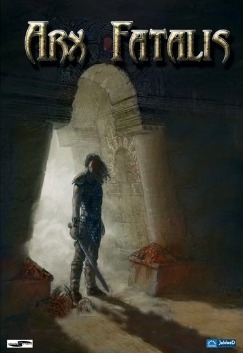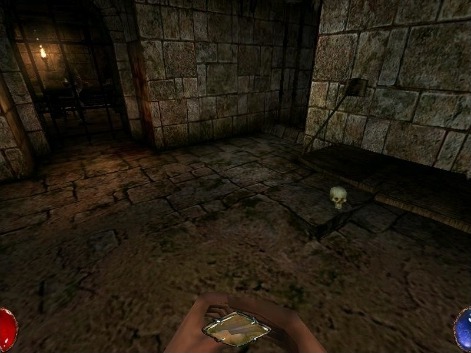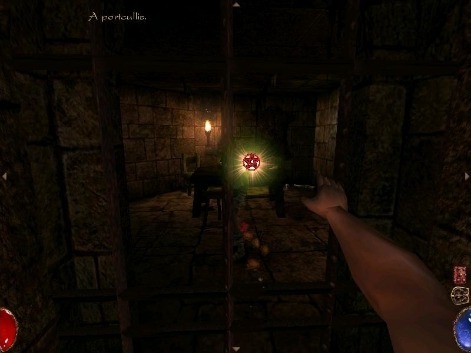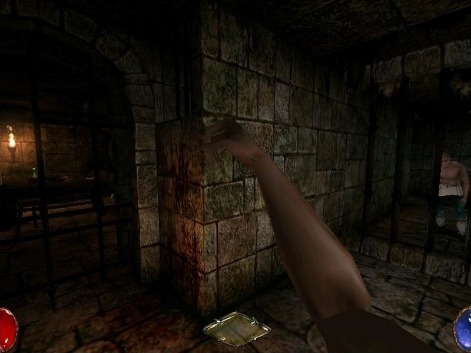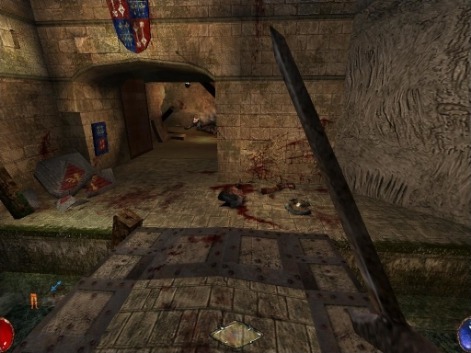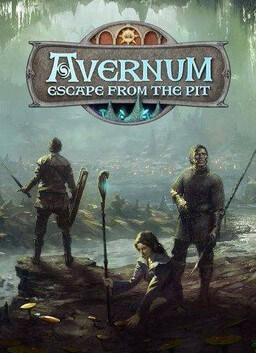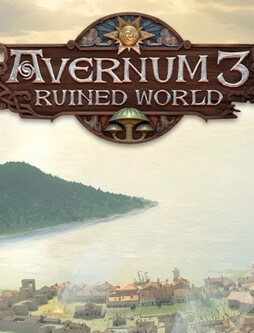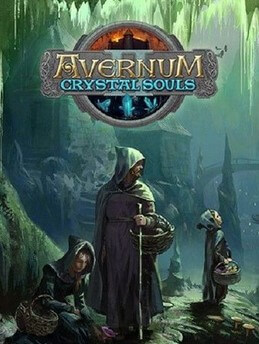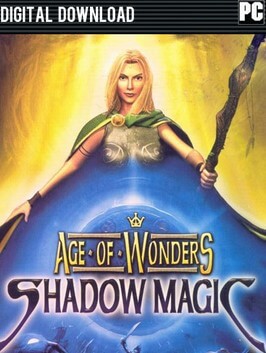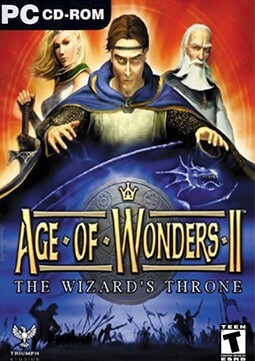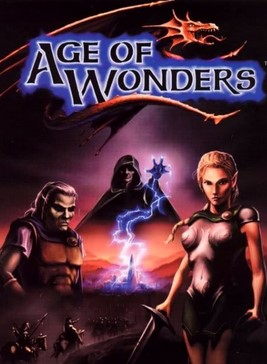Arx Fatalis is a role-playing video game for the Xbox and Microsoft Windows, released on 12 November 2002 by Arkane Studios, a video game developer based in Lyon, France.
Arx Fatalis is played from a first-person perspective and is set on a world whose sun has failed, forcing the above-ground creatures to take refuge in subterranean caverns. One game mechanic is the use of mouse gestures to cast spells.
On 14 January 2011, Arkane Studios released a 1.21 patch and the game's source code under the terms of the GNU General Public License (GPL), though the game assets remain proprietary.
Plot
Arx Fatalis (Latin for "fatal fortress") is set on a world whose sun has failed, forcing the above-ground creatures to take refuge in subterranean caverns. The action in Arx Fatalis takes place in one of these large caves, where inhabitants from all races such as Trolls, Goblins, Dwarves, Humans, etc. have made their homes on various levels of the cave. The player awakens inside a prison cell and, after making his escape, eventually discovers his mission is to subvert and imprison the God of Destruction, Akbaa, who is trying to manifest itself in Arx.
Gameplay
Arx Fatalis has a somewhat open-ended gameplay style, allowing the player to allocate skill points for the character type such as spellcasting, weapons and armor, stealth, and so on. There are several side quests that can be undertaken. Simple crafting involves enchanting ammunition and weapons, or creating items, such as a fishing rod (fishing pole and rope), keyrings (key and ring), or pies (dough and rolling pin, optional apple and optional bottle of wine). Raw food can be cooked, like rounds of bread, chicken drumsticks, or pies. The main plotline is non-linear with the player collecting the various items to forge a sword required to defeat Akbaa in a final showdown. Additional goals come up such as dealing with the rebels of Arx, the snake women and The King of Arx. The player can resolve the conflict between them all and experience several different endings to the conflict with different consequences somewhat affecting the story.
There is no dialogue system in Arx Fatalis. Rather, the player is able to make choices through actions which lead to different consequences. There are also multiple ways to finish quests and the player can progress through the game in several different ways. For example, the player can use force to kill enemies and break down doors, or they can use stealth and avoid enemies.
One of the intuitive interfaces in Arx Fatalis is the spellcasting system. Using the mouse and the Ctrl key, runes are drawn in mid-air with mouse gestures, which must be correctly drawn, in order to successfully cast a spell. The player can find or buy different runes as gameplay progresses, combinations of which unlock new spells.
This gestural interface was simplified in the Xbox version to account for the limitations of the joypad. Each direction of the directional pad corresponds to a different mouse direction and different combinations of directions are entered with the directional pad to draw runes and correspondingly cast spells. A queue of up to 3 spells can be cast in advance, ready to be activated at the press of a button. There is also an instant magic mode that allows the player to simply select the desired spell they want to cast from a list of learned spells during gameplay.
In addition, Arx supports a stealth mode that is active when a stealth icon is visible on the interface. In stealth mode, usually when a player is in dark or shadowy areas, non-player characters cannot see them.
Development
The design of Arx Fatalis was influenced by games from the now-defunct Looking Glass Studios, especially Ultima Underworld. Arkane Studios have stated that Arx Fatalis was intended to be Ultima Underworld III, however while Raphaël Colantonio had support from Paul Neurath, one of the original developers of Ultima Underworld, Electronic Arts, who owned the rights, would not allow Arkane to make a sequel with their intellectual property unless he accepted some of their provisions. Colantonio refused to accept this and instead had Arkane set out on the game in the spirit of Ultima Underworld. Colantonio had difficulty in getting a publisher; with finances nearly exhausted, they had signed one small publisher who had gone bankrupt within the month, but later secured JoWooD Productions for publication, eventually releasing in 2002. While the game was well received, it was considered a commercial failure.
Arx Fatalis was released for Microsoft Windows on 28 June 2002 and for the Xbox in 23 December 2003. In April 2007 Arx Fatalis was released on the digital distribution platform Steam, followed by GOG.com in December 2008.
On 14 January 2011, Arkane Studios released a 1.21 patch and the game's source code under the terms of the GNU General Public License (GPL). Based upon this source code the formed Arx Libertatis-project tries to fix bugs and incompatibilities and port the game to operating systems like Linux, FreeBSD and the OpenPandora handheld. Latest iteration of Arx Libertatis is 1.1 released in July 2013. Also, several fan-made translations of the game were created, e.g. to Polish, Turkish and Korean.
